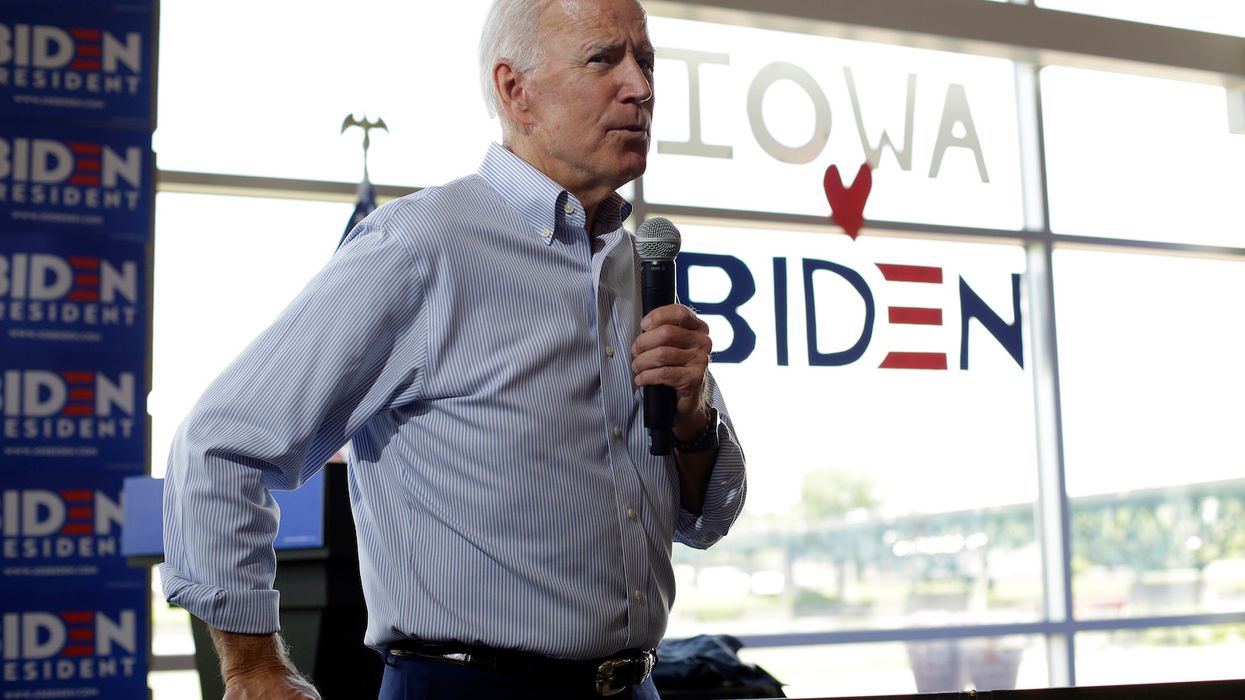
Joshua Lott/Getty Images

Some politicians are watering down the term
"Personally pro-life."
That's a term being used by some politicians, often Democrats, when they know abortion is wrong but they are unwilling to make any political sacrifice to hold such a belief.
So they say, "I'm personally pro-life, but..." and then talk about how they don't think their beliefs should be imposed on others.
It's notable that only on the issue of abortion are lawmakers and candidates so careful to make sure they don't attempt to influence the law according to their own beliefs.
This isn't the case with economic policy, immigration, health care, or any other major issue. That's why we as voters care what politicians believe personally—because we expect them to advocate and govern accordingly. We don't just ask them what they plan to do if elected; we dig as deeply as possible into who they are.
Joe Biden is a "personally pro-life" Democrat. He says that his Catholic faith leads him to oppose abortion, but to him, to advocate for pro-life laws and policies would be to force his personal religion on the citizens of the United States.
So, Biden ascribes to a religion that asserts, according to the Catechism of the Catholic Church, that "human life must be respected and protected from the moment of conception," "direct abortion...is gravely contrary to the moral law," and "formal cooperation in an abortion constitutes a grave offense."
But, for Biden, this belief does not extend past his personal life. While he apparently believes that abortion is the grave sin of killing an innocent, unborn child, that belief is not significant enough in his view that he should try to prevent other people from committing such a heinous and devastating act.
He demonstrated the limits of his pro-life belief when, after only one day of pressure from pro-abortion advocates, he abandoned a long-held belief that federal funds should not be used for abortion services. His standing as the frontrunner for the Democratic nomination took precedence over his "personal" belief in the sanctity of unborn life.
This, I would argue, is not what it means to be pro-life.
John Bel Edwards is the Democratic governor of Louisiana. Edwards is also pro-life. Not just personally, but, in the face of severe opposition within his party, also politically.
Edwards signed into law a bill banning abortions after the detection of the fetal heartbeat. It's the type of law that has stirred up great controversy, and which could very well be struck down by the courts before taking effect.
It's quite possible that Edwards has committed political suicide by signing such a bill with the abortion debate in America raging as fiercely as it ever has. At the very least, he has likely put an end to any prospects with the national Democratic Party, to the extent that they even existed beforehand.
For Edwards, the decision to sign the bill was simple. He believes life in the womb should be protected by law, and he uses his significant political platform to advance that belief, as the people of Louisiana elected him to do.
"In 2015, I ran for governor as a pro-life candidate after serving as a pro-life legislator for eight years," Edwards said in a statement about the bill. "As governor, I have been true to my word and my beliefs on this issue. But it is also my sincere belief that being pro-life means more than just being pro-birth."
That's what it means to be pro-life. Not to be pro-life when it's politically acceptable, or only when it comes to your own personal life. To believe, universally, that unborn life is still human life, and that it should not be treated as less valuable than any life outside the womb.
This is a difficult issue, even for people of faith and people with strong personal beliefs. I don't bring up Joe Biden for the purpose of shaming him; rather, I bring him up to illustrate the fact that the pro-life belief only makes logical sense if you believe it should apply to every life.
Being pro-life isn't always easy. Sometimes the belief is met with accusations of hating or attempting to control women. Other times it is challenged with truly heart-wrenching anecdotes of unwanted pregnancies resulting from sexual assault. But, right and wrong are not determined by what is easy. And if you really believe that an embryo or a fetus is an inherently valuable human life, taking the pro-abortion stance shouldn't be any easier, even if it is politically beneficial.
Rare as they might be, we should still seek out and celebrate politicians who are not afraid to govern according to their moral beliefs, and reject those who would compromise their own beliefs for political considerations. We don't have to vote for those with whom we disagree, but our democracy is healthier when principles, not politics, shape the public discourse.